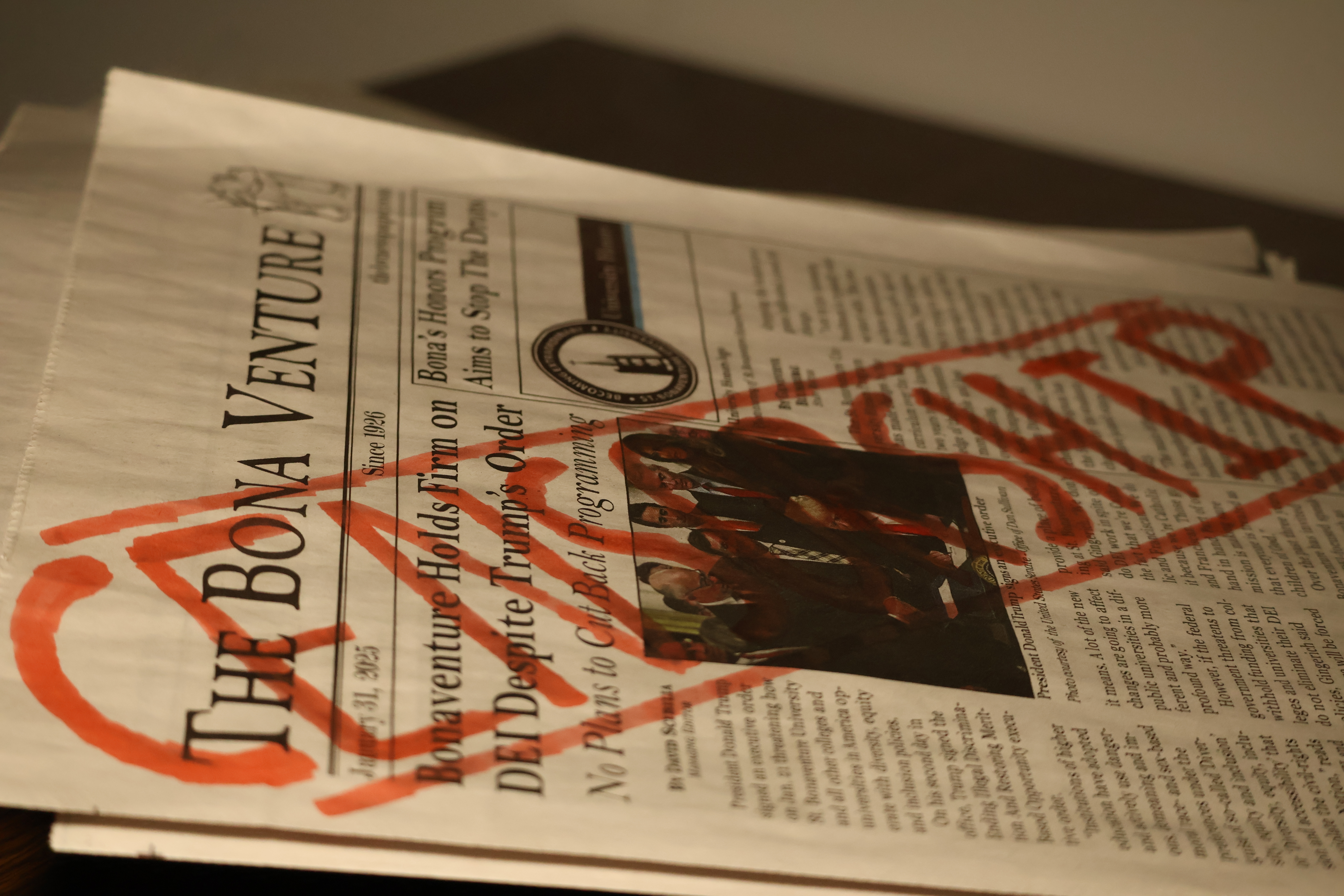BY JOSEPH DEBELL, OPINION EDITOR
Graphic: Joseph DeBell / The Bona Venture
Michael Smith’s case should serve as a reminder that regulation in the music streaming industry is not just about preventing financial fraud — it’s about preserving the integrity of music.
The recent arrest of Smith, who managed to swindle $10 million through a scheme involving artificial intelligence, fake songs and fabricated listeners, serves as a wake-up call.
Smith’s method was ingenious and troubling. He created thousands of AI-generated songs under names like “Callous Post” and “Calorie Screams,” streaming them billions of times using bots. Penny by penny, he siphoned royalties that should have gone to legitimate artists.
This case represents a bigger issue in the zeitgeist of music. Streaming platforms can be manipulated without proper oversight, leading to immediate financial harm. The solution is to regulate the music streaming industry.
His scheme didn’t just steal money — it exploited a system that underpays songwriters.
Streaming platforms like Spotify and Apple Music have become the primary modes of consumption for most listeners, but they are unregulated. They rely on algorithms and metrics to distribute royalties, creating a system ripe for exploitation. If one person can manipulate this system to this degree, how many others are doing the same?
When fake songs by non-existent artists like “Zygopteron” or “Zygosporic” clog the airwaves, they push out space reserved for actual music from real people. Artists struggling to get their music heard are further marginalized by an industry prioritizing quantity over quality algorithms.
Streaming services must be held accountable for the content they host. They should invest in technology to detect and prevent fraudulent activity, ensuring that the artists who color our cultural landscape are fairly compensated. This could involve creating stricter verification processes for music uploads.
Just as the FCC regulates the airwaves, an independent organization should oversee the digital music landscape to ensure fairness and transparency. This body could set industry-wide standards for royalties, data transparency and anti-fraud measures.
The music industry has always been a battleground between art and commerce. However, the rise of AI-generated content and streaming manipulation adds a new layer left unchecked. Right now, we risk a future where music becomes no less than a commodity and devoid of the creativity and soul that defines it.
debelljb22@bonaventure.edu






